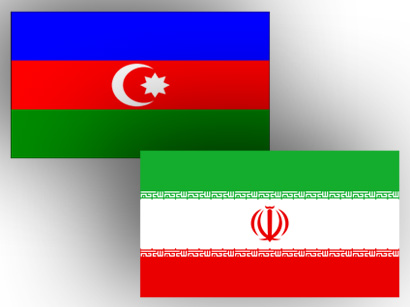Baku, Azerbaijan, Aug 5
By Aygun Badalova, Farhad Daneshvar – Trend:
President of Azerbaijan Ilham Aliyev and his Iranian counterpart Hassan Rouhani are expected to discuss the issues of trade, transportation and energy as well as regional security during President Rouhani’s upcoming Baku visit on Aug. 7.
President Rouhani is expected to arrive in Baku in the coming days for trilateral and bilateral talks with Ilham Aliyev and Russian counterparts Vladimir Putin on the issues of interest.
North-South transportation corridor
An ambitious project for creating the North-South transportation corridor has been in spotlight as a key topic in bilateral and trilateral talks over the past several years as the prospects for cooperation between Azerbaijan and Iran in transportation sphere seems very promising.
Azerbaijan and Iran are participants of the large and perspective North-South transportation corridor, which is meant to connect Northern Europe with Southeast Asia. The project is notable for its benefits not only for development of the economies of two countries involved, but also for other countries, located along the railway route and the region as a whole.
While Iran and Azerbaijan have launched construction works aimed at connecting their railway systems as two major participants of the transportation corridor, the bilateral meeting between Rouhani and Aliyev is expected to give a further impulse in the project’s implementation.
Meanwhile, Iran's Ambassador to Azerbaijan Mohsen Pak Ayeen told Trend that both sides have taken proper measures to fulfill their commitments regarding the transport cooperation.
“Massive construction works are underway to connect the railways of Iran and Azerbaijan in both countries and almost 60 percent of the project has already been completed,” Pak Ayeen said.
At the initial stage, it is planned to transport 5 million tons of cargo via the North-South corridor per year and to increase the figure to over 10 million tons in the future. In addition to its international aspects, the corridor will have a significant role in reducing transportation costs as well as booming volume of trade turnover between Iran and Azerbaijan.
Trade
While trade turnover between Azerbaijan and Iran is expected to shoot up by 80 percent over the coming months, adopting policies in order to encourage traders seems to be on the agenda.
“Providing the traders with incentives like easing visa requirements and decreasing customs duties would contribute to growing trade turnover,” said Mohsen Pak Ayeen.
The value of trade turnover between the two neighboring countries increased by 66 percent over the first half of 2016 and it is projected to hit $1 billion on the medium-term.
According to the latest statistics by Iran’s Custom Administration, the Islamic Republic imported worth of $15.4 million of goods from Azerbaijan over the first quarter of the current Iranian calendar year which started March 20.
Energy
While Energy sphere has an important role in strategic cooperation between the two neighboring countries, their ties in the energy sector could touch upon oil, gas and power.
Back in February 2016, following President Ilham Aliyev’s Tehran visit, a memorandum of understanding was signed for cooperation in oil and gas sphere between the two countries.
Iran is already participating in developing of Azerbaijan's huge Shah Deniz field. The two countries also have gas swap infrastructure via which Azerbaijan supplies its fuel to Iran's northern provinces.
Azerbaijan and Iran are considered as countries with rich gas reserves and they both have intentions to increase their export capacities.
Initiated by Azerbaijan, the Southern Gas Corridor project, aimed at providing the EU with alternative gas supply sources, may also be an opportunity for Iran to reach European market.
The sides have already begun discussions on the possibility of delivering Iranian gas to the Europe via the Southern Gas Corridor.
Speaking of power, both Azerbaijan and Iran are keen to boost cooperation as the two countries have plans to connect their electricity networks and significantly increase electricity trade.
In December, 2015 Azerbaijan and Iran signed a MoU on electricity swap, which envisages linking the two countries' power grids. The upcoming bilateral meeting is expected to contribute further development to cooperation between the two countries in energy sphere.
Security
Terrorism and violent extremism as well as drug trafficking pose threat against regional security therefore the heads of the countries would possibly discuss the ways to counter the existing threats.
Also, the Armenia-Azerbaijan Nagorno-Karabakh conflict as well as escalation of military clashes in April have caused serious concerns among the regional countries.
The Islamic Republic has said that Azerbaijan's integral sovereignty is of high importance for Iran, voicing its readiness to help settling the conflict.
The conflict between the two South Caucasus countries began in 1988 when Armenia made territorial claims against Azerbaijan. As a result of the ensuing war, in 1992 Armenian armed forces occupied 20 percent of Azerbaijan, including the Nagorno-Karabakh region and seven surrounding districts.
The 1994 ceasefire agreement was followed by peace negotiations. Armenia has not yet implemented four UN Security Council resolutions on withdrawal of its armed forces from the Nagorno-Karabakh and the surrounding districts.
It appears that whatever the outcome of the talks will be, its results would have a positive and lasting impact on improving economic situation and also the security of the whole region.






